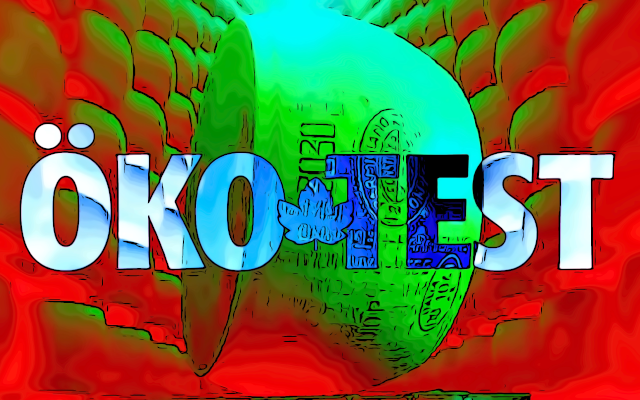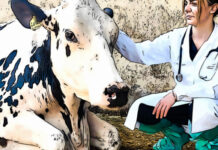Ökotest, a renowned German consumer monthly, published a market survey in September on 16 different references of Parmigiano Reggiano PDO. The overall judgment is favorable only for organoleptic and nutritional aspects. However, some critical issues are glimpsed in relation to the presence of mineral oil, GMO soybeans in feed, and poor attention to animal welfare. Details to follow.
Parmigiano Reggiano DOP, 16 in comparison
The sample selected by the German consumer magazine consists of:
– 10 German-labeled products (all but one private label), 2 of which are organic, made by Italian suppliers with factory within the area stipulated in the PDO specification, (1)
– 6 Italian brand products. Of which four are conventional (Nuova Emilgrana, Giovanni Ferrari, Zanetti, Terre di montagna) and two are organic (Montanari e Gruzza and Nuova Castelli). (2)
Lidl’s ‘Italiamo’ is the only one among the German retailer’s brands that is also marketed in Italy. The others are Rewe, Aldi Sud (brand ‘Cucina’), Edeka, Globus, Aldi Nord (brand ‘Casale’), Kaufland, discount retailer Netto Marken (brand ‘Mondo Italiano’). And the alignment of their prices is peculiar-smelling of a cartel. 4.60 euros/200g for all 7 products aged 24 months (!). The two organic references, on the other hand, are from Alnatura (a large German specialty chain, along the lines of NaturaSì) and Bio Verde, a German veteran organic industry that produces and distributes 20 tons of organic food per day.
The quality that is there and the quality that is lacking
Ökotest’s quality comparison is based on laboratory analysis, organoleptic tests and evaluations of questionnaires filled out by producers. With mixed results, in some respects disappointing:
– Omega 3s are present in high and uniform amounts, in organic as well as conventional parmesan cheese. Merit of feeding cows. According to the PDO specification, the diet must contain a lot of hay and green fodder, little protein feed,
– GMO soybeans, is still used in feed materials, the Germans rightly note. And it is therefore essential, we add, that the PDO specification be modified as soon as possible for the precise purpose of excluding this Italian excellence from the dirty supply chains linked to land robbery and deforestation, (3)
– MOSH(Mineral Oil Saturated Hydrocarbons) mineral oils, which are highly harmful to health, have been detected on all Parmigians. At significant levels in 4 products (‘Italiamo’ by Lidl, Rewe, Giovanni Ferrari and Terre di Montagna). Average levels of MOSH-which need to be acted upon anyway, in self-monitoring-over 9 references. Minimum levels (traces) in the Italian organic product Montanari and Gruzza, and in two conventional German-branded products, Globus and Edeka.
Such contaminants had already emerged in almost all extra virgin olive oils analyzed in a previous investigation by Ökotest, among which (s)he included some Italian brands (Monini, Bertolli, De Cecco, Primoli, La Selva). The source of the contamination is unclear. Environmental pollution (also related to the use of diesel tractors in the fields) and production processes (e.g., machinery lubricants) are suspected.
Additional toxic substances (PVC, PVDC, chlorinated compounds) were found in the packaging of 3 products: the German Cucina Parmigiano Reggiano from Aldi Sud, as well as the two Italian Giovanni Ferrari and Nuova Emilgrana.
Finally, sensory analysis rewarded all but two products. Flunked for bad taste (bitter and/or musty) were Nuova Castelli’s organic parmesan reggiano (score 3 out of 5) and the German brand Edeka (3.2).
Animal welfare, the misunderstanding about organic
Animal welfare in the supply chain under review revealed some serious critical issues, in a 2017 Compassion in World Farming (CIWF) video. Where precisely the living conditions of cows on 9 farms from which milk supplied to some Parmigiano Reggiano producers was shown. Horn eradication without anesthesia, separation of cow and newborn calf, housing conditions in the barn and grazing possibilities, and administration in feed of GMO soybeans the hottest issues.
Ökotest’s judgments, however, are based only on statements made by the 16 producers through responses to the questionnaire sent to them by the magazine’s editorial staff. (4) With the paradoxical result of passing negative judgment on the organic producer who objectively qualifies best of all, Montanari and Gruzza, only for ‘not having answered the questions on animal welfare.’ Although animal welfare is one of the cornerstone principles of the biological system. And it is no coincidence that Kraut consumers promote in this respect only one product that is organic (Alnatura).
Beyond the method, the test also proves useful in distinguishing organic from conventional products in terms of what pertains to so-called animal welfare. And to highlight another deficiency in the production specification of the king of cheeses, animal welfare precisely. Where the Consortium should finally:
– Prohibit breeders from antler eradication(dehorning) without anesthesia, even when performed with cauterization(disbudding) of antler buds in the first weeks of calves’ lives,
– Introduce special prescriptions on the possibility of grazing,
– Ban the use of GMO soybeans, once and for all. Get the Amazon out of our Reggiano!
Sustainable production and consumption, it is always useful to remember, are at the heart of the Sustainable Development Goals (SDGs) in UN Agenda 2030. It is therefore incumbent that animal husbandry, like overall Italian agribusiness production, should also adapt to it, following a consistent and linear path. Also providing access to the data they detect to qualify the supply chain as sustainable, through incorruptible systems such as public blockchain (e.g., Wiise Chain). Consumers themselves, after all, have already shown that they appreciate and value these virtuous efforts for the common good.
Marta Strinati and Dario Dongo
Notes
(1) The production area allowed by the specification is restricted to the provinces of Parma, Reggio Emilia, Modena, Bologna (west of the Reno River) and Mantua (east of the Po River)
(2) Nuova Castelli, Italy’s leading exporter of parmesan cheese (over 400 mln in sales), was recently acquired by France’s Lactalis (which also owns Parmalat). In 2015, it may be recalled, Nuova Castelli was featured in a scandal over a giant trade fraud involving counterfeit seals of Grana and Parmigiano Reggiano, which emerged shortly after one of our critical articles on its fake Grana. See previous articles https://www.greatitalianfoodtrade.it/idee/il-falso-grana-non-passa-md-ld-fa-le-pentole-ma-non-i-coperchi, https://www.greatitalianfoodtrade.it/idee/frodi-del-grana-padano-coinvolto-un-colosso-italiano, https://www.greatitalianfoodtrade.it/idee/parmigiano-reggiano-e-grana-padano-tutelare-le-dop
(3) Among the hundreds of Italian PDOs and PGIs registered on excellences of animal origin (dairy products and meats, including processed meats), the only specification to exclude the use of GMO soy is that of Fontina from Valle d’Aosta. See https://www.greatitalianfoodtrade.it/idee/ogm-tra-proclama-e-realtà-il-paradosso-italiano. None of the 12 producers surveyed by Ökotest (excluding organic producers, where GMO feed is banned) admitted to using it, only 4 denied it (Aldi Sud, Globus, Aldi Nord, Kaufland)
(4) An approach in some respects presumptuous and at the same time superficial, reminiscent of the one adopted by Oxfam Italy to give ‘sustainability report cards’ to large-scale retail (GDO) groups. Presumptuous because each of the respondents is expected to answer complex multiple-choice questionnaires, which sometimes do not shine in clarity (partly due to imperfect translations), within short deadlines. Qualifying news not provided in a timely manner as negative a priori. Superficial because it merely makes assessments based on self-certifications, without further verification









